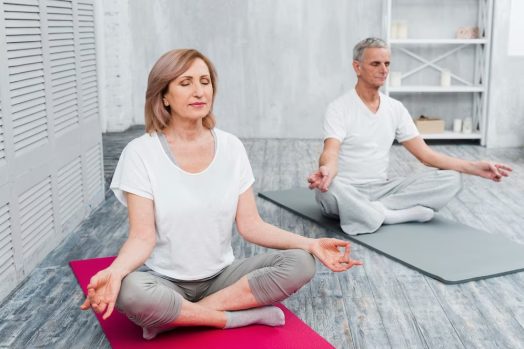Most people zone out when relaxation exercises are mentioned, but they are important skills to learn. While many people think they relax when they sleep or watch TV, it is not the same as teaching our body to recognize when muscle tension is very high and learning to release it. Relaxation techniques have become increasingly popular in recent years due to their remarkable ability to improve the quality of life.
Dr. Sue Webb, a clinical psychologist specializing in stress management, emphasizes the significant benefits these techniques offer. By incorporating relaxation practices into our daily routines, we can have many benefits, including reducing stress levels, reducing anxiety and depression, improving sleep quality, lowering blood pressure, and reducing chronic pain.
Relaxation techniques are various methods or practices. This blog explores the benefits of learning relaxation techniques and how they can help improve our quality of life.
Here are some popular relaxation techniques that you can try:
- Meditation: When starting with meditation, find a quiet and comfortable place to sit. Close your eyes, relax your body, and focus your attention on a word, phrase, object, or your breath. Whenever you feel your mind wandering, gently bring your focus back to your chosen point of attention. Practice for a few minutes each day and gradually increase the duration.
- Deep Breathing: like with meditation, the best way to practice deep breathing is to find a quiet place. Sit or lie down comfortably, and begin to take slow, deep breaths. Breathing in deeply through your nose, allowing your abdomen to rise, and exhale slowly through your mouth, and letting your abdomen fall will draw attention away from painful sensations. Focus on your breath and try to release tension with each exhale.
- Progressive Muscle Relaxation: Start by tensing and then relaxing each muscle group in your body. Begin with your toes and gradually work your way up to your head. As you tense each muscle group, hold the tension for a few seconds, and then release it, allowing the muscles to relax completely.
- Visualization: Close your eyes and imagine yourself in a peaceful and serene environment, such as a beach, forest, or meadow. Visualize the details of the scene, including sights, sounds, and smells. Engage your senses and allow yourself to experience the relaxation and tranquility of the imagined setting.
- Mindfulness: Be fully present in the current moment and observe your thoughts, feelings, and bodily sensations without judgment. Pay attention to the sights, sounds, and smells around you. Engage in activities with full awareness, whether it’s eating, walking, or simply sitting.
- Yoga: Although yoga might not be for everyone, the relaxation it provides can often be of service to people looking for ways to manage chronic pain. Gentle stretching and yoga poses, when done correctly relax your body and calm your mind. Focus on your breath while moving through the poses, allowing yourself to become more present and centered. Yoga can help improve flexibility, reduce muscle tension, and promote relaxation. Joining a yoga class can go a long way to building up your confidence when first starting out.
- Guided Imagery: Listen to guided relaxation recordings or apps that lead you through imagery exercises. These recordings often combine soothing music, calming narration, and visualizations to guide you into a state of deep relaxation.
Remember that relaxation techniques can be highly individual, so it’s essential to find what works best for you and your level of comfort. You can experiment with different methods and adjust them to suit your preferences and needs. Regular practice is key to experiencing the full benefits of these techniques, especially in the application to treat conditions such as chronic pain.
Each technique engages the mind and body to induce a state of calm and tranquility. These practices not only provide immediate relief from stress but also have long-term benefits, such as strengthening resilience and improving emotional regulation.
If you are seeking to enhance your quality of life contact Dr Sue Webb, a clinical psychologist. We are dedicated to guiding individuals on their journey toward a more peaceful and fulfilling life.
Whether you are struggling with stress, anxiety, or simply want to incorporate relaxation into your daily routine, their expertise and support can make a significant difference. Take the first step toward a better life by reaching out today.
Dr Sue Webb
Clinical Psychologist
May 2023



Leave a Reply